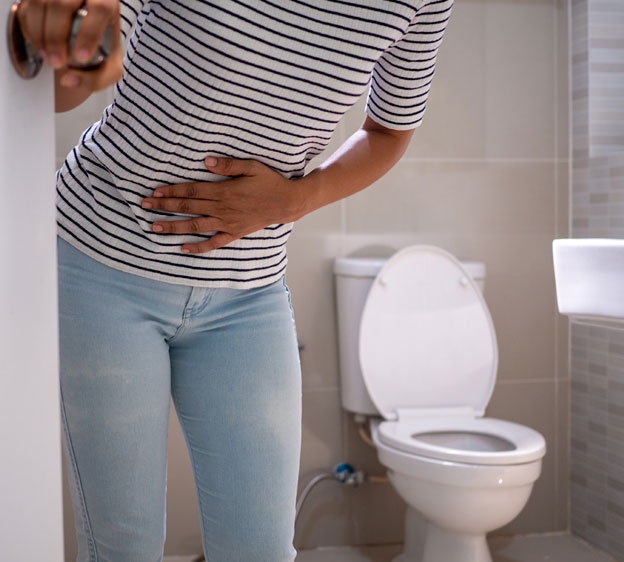
Stomach pain? Constant bloating and constipation? These symptoms are not all in your head, and they probably aren’t a simple case of bad take-out. They probably aren’t caused by “leaky gut syndrome,” either. These are all symptoms of irritable bowel syndrome (IBS), a complex disorder related to altered brain-gut interaction.
“A functioning gut moves food and waste along,” says Dr. John Crisologo, gastroenterologist at Beaufort Memorial Lowcountry Medical Group. “But for people with IBS, this process is hindered, causing uncomfortable symptoms.” Living with IBS isn’t easy. You may find your plans revolve around having consistent access to a restroom. Fortunately, the disorder can often be managed with nutrition and lifestyle changes.
Read More: It’s a Pain in the Gut
Home Care for IBS
Making a few simple changes may ease ongoing symptoms from IBS. Dr. Crisologo recommends:
- Committing to stress-relieving activities, such as yoga or meditation, as stress worsens IBS symptoms
- Fiber supplements, which may help you go to the bathroom more regularly
- Making lifestyle changes, such as getting more sleep and consistent exercise
- Over-the-counter probiotics, which provide natural gut bacteria that aid digestion
- Peppermint oil, which relieves stomach cramps, another common symptom of IBS
- Taking over-the-counter medications, such as simethicone and milk of magnesia, to relieve stomach upset and/or constipation.
Many home remedies can be helpful, but avoid solutions that may harm your health.
“An example would be colon cleansing or enemas — they can be useful for some people with IBS but, if done incorrectly, can cause trauma,” Dr. Crisologo says. “Also, magnesium supplements can help relieve constipation, but some adults are advised not to take them. Consult your physician before attempting to resolve IBS on your own.”
The Best Foods to Eat If You Have IBS
The best diet for IBS may depend on your symptoms. Many people see improvements to IBS symptoms by following a low FODMAP diet. FODMAP stands for fermentable oligosaccharides, disaccharides, monosaccharides and polyols, all of which are types of carbohydrates that are hard to digest.
“Following a low-FODMAP diet can be useful if you mainly have diarrhea, but it is less helpful if you’re dealing with constipation,” Dr. Crisologo says. “As a general rule, steer clear of processed foods, greasy fast foods and foods high in sugar.”
However, he adds that everyone responds differently to a specific diet. That’s why it’s helpful to work with a board-certified gastroenterologist or dietitian to find the right diet for you.
If you are unsure of which foods may be worsening symptoms, keep a food diary. Log everything you eat and drink as well as any symptoms experienced afterwards. Bring this list with you to your next appointment with a doctor or for further guidance on food choices.
Read More: Navigating the Grocery Store
Does Fasting Help IBS?
Based on scientific literature, people with IBS should follow a normal eating pattern of breakfast, lunch, dinner and occasional snacks. Intermittent fasting may help digestion because it allows long gaps in between eating periods. However, fasting may force you to eat larger meals, which can trigger IBS symptoms. Instead, try eating smaller meals during the day, allowing some time in between meals for digestion.
Getting Help
Remember, if symptoms do not improve, it may help to seek care from your physician or a gastroenterologist. Some signs IBS may be getting worse include anemia, bleeding or unexplained weight loss. Getting further medical care can help you on your journey of living happy with IBS.
If you have been recently diagnosed with IBS, download our free guide, Living With IBD and IBS, which has helpful tips for managing your condition.

